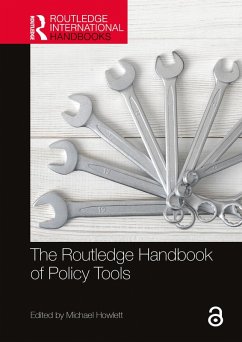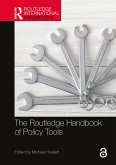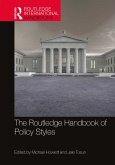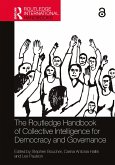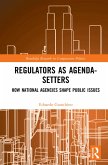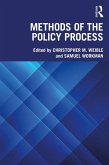The book consists of nine sections with five corresponding to the major research emphases of studies on policy tools across the stages of the policy cycle (agenda-setting, formulation, decision-making, implementation and evaluation). These are accompanied by overviews of key research and concepts, a discussion of how different kinds of tools can be usefully combined in simple or complex policy portfolios or mixes, and a concluding section on future research directions. Consolidating the state of knowledge and uniting classic foundational material with recent advancements in theory and practice in one location, the handbook is a defining volume in this field.
The Routledge Handbook of Policy Tools is essential reading and an authoritative reference for scholars, students, researchers and practitioners of public policy, public administration, and public management, as well as those interested in comparative politics and government, public organizations and the use of policy tools and instruments in individual policy areas from climate change to public health.
Dieser Download kann aus rechtlichen Gründen nur mit Rechnungsadresse in A, B, BG, CY, CZ, D, DK, EW, E, FIN, F, GR, HR, H, IRL, I, LT, L, LR, M, NL, PL, P, R, S, SLO, SK ausgeliefert werden.
Daniel Béland, McGill University, Canada
"This comprehensive volume provides definitive analyses of the critical connections between choosing appropriate policy tools and achieving desired policy outcomes. Michael Howlett has assembled a stellar cast of international scholars. They demonstrate the critical challenges of designing policy mixes for important problems, while taking account of evaluation evidence and changing political contexts. They provide new insights into how emerging problems are being tackled through new techniques such as big data analysis, behavioural psychology and co-production."
Brian Head, University of Queensland, Australia
"This excellent volume advances understandings of how combinations of policy tools manipulate both the substance and the processes of policymaking. It provides a great service to anyone interested in using tools as an analytical framework. And it will be welcomed by everyone who is concerned with better understanding how the policy process works."
Jenny M Lewis, University of Melbourne, Australia
"The Handbook's combination of the policy tools approach with the stages where the tools are deployed in the policy process - e.g., agenda setting, policy formulation and policy decision-making - has never been this comprehensively, systematically and successfully carried out before in the literature."
Evert Vedung, Uppsala University, Sweden
"The study of policy instruments traditionally constitutes a central topic of policy sciences. In the last decade, the research on policy tools accelerated very significantly. This important and complete book takes research on policy tools to a new level by organizing and synthesizing a large volume of new findings and perspectives."
Arnost Veselý, Charles University, Czech Republic

